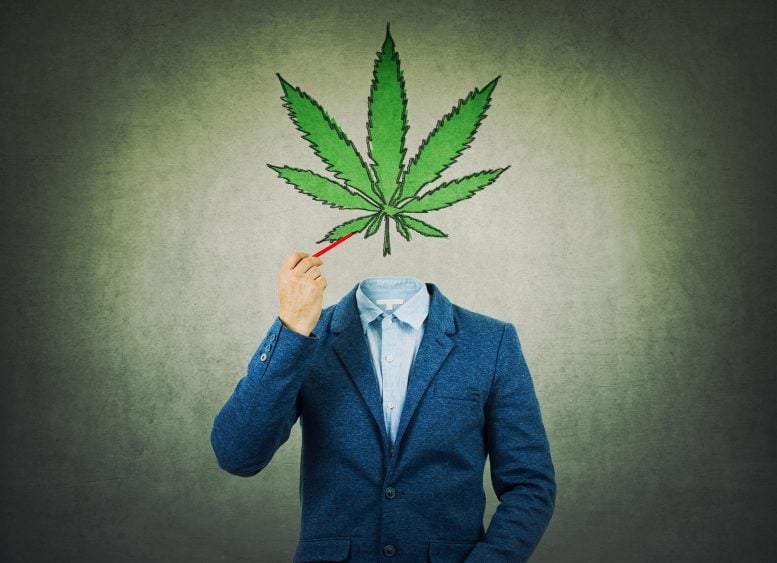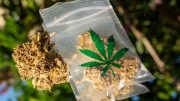
The results may help couples where at least one partner uses cannabis better handle conflict resolution and discussion.
According to Rutgers research, cannabis users tend to be less conscious of the problematic relationship dynamics they can use with their partners while resolving a disagreement.
A joint study by Rutgers University and Mount Holyoke College found that cannabis users may not be aware of potentially problematic dynamics and may believe their methods for handling conflict in romantic relationships are better than they really are.
The study is one of few to look at how cannabis usage is related to how couples connect and was published in the journal Drug and Alcohol Dependence. According to researchers, the results may help couples where at least one person uses cannabis navigate conflict resolution and discussion more smoothly.
“We looked at different indicators of relationship functioning: how satisfied and committed people felt about their relationship, their behavior and physiology during a laboratory-based conflict interaction, and their perceptions about their conflict discussion and relationship afterward,” said author Jessica Salvatore, an associate professor in the department of psychiatry at Rutgers Robert Wood Johnson Medical School.
In the study, 145 couples with at least one cannabis user were questioned about how often they used the drug and how content they felt with their relationship. Researchers recorded the couples talking about a significant cause of conflict for 10 minutes, during which time they analyzed the physiological stress response by monitoring their heart rate and breathing.
The couples then spoke about their points of agreement for five minutes. Researchers then questioned participants on the effectiveness of the discussions and their level of satisfaction with the outcome.
Two groups of experienced raters watched the videos and rated each partner’s conflict conduct on separate five-point measures, including avoidance (deflecting, skirting, or avoiding areas of disagreement) and negative engagement (making demands for change, criticizing, or blaming).
A separate set of raters assessed the extent to which partners were able to transition out of conflict, regardless of resolution, toward a discussion of agreements and positive aspects of their relationship. They assigned low scores when participants made no substantive contributions to the discussion of positive aspects of the relationship and high scores when they nominated areas of agreement or positive aspects of the relationship or when they elaborated upon their partner’s suggestions.
The researchers found participants who used cannabis more frequently showed less parasympathetic withdrawal during their interaction with their partner – indicating reduced capacity to flexibly respond to stress. They also issued more criticism and demands, avoided conflict during the discussion, and were less able to reorient themselves to a discussion about the positive aspects of their relationship. Yet, paradoxically, when asked how they thought the conflict conversation went, cannabis users reported greater satisfaction with how the conflict was resolved and did not perceive themselves as having used demand or avoidance strategies.
“The assessments by the cannabis users were almost the exact opposite of what independent raters found,” said Salvatore. “However, it is important to note that this study’s findings do not mean that cannabis use is wholesale good or bad for relationships. Rather, it gives insight into how couples can better navigate conflict and come to a resolution. When you don’t see problems, you can’t solve them.”
Reference: “Relationship perceptions and conflict behavior among cannabis users” by Katherine C. Haydon and Jessica E. Salvatore, 4 July 2022, Drug and Alcohol Dependence.
DOI: 10.1016/j.drugalcdep.2022.109502
The study was conducted in collaboration with Katherine C. Haydon, an associate professor in the psychology and education department at Mount Holyoke College.









Why are you printing study results. This are a complete interpretation. This is not news. This is opinion. This is why you are a hack and this pub. is nothing but hacks. Next time do, “Why Are Butterflies Not Made of Butter?”
This is an interesting perspective. My partner and I are both heavy marijuana users. I am a cancer survivor and even before that, I used more medicinally to self treat mild bipolar. I can’t say I’ve ever felt “high”, but I have found relief. My partner, on the other hand, uses marijuana as if it’s beer to an alcoholic. (One who thinks it’s not really drinking if you’re not fall down drunk. He definitely feels high. He also has terrible relating skills in general and is extremely adverse to giving positive feedback. I have tried so many different approaches to improve our communicating, and he always acts like there isn’t any problem. I wonder if this could have a part to play.
I must thank you for the efforts you have put in penning this website. I really hope to check out the same high-grade content from you later on as well. In fact, your creative writing abilities has motivated me to get my own, personal site now 😉